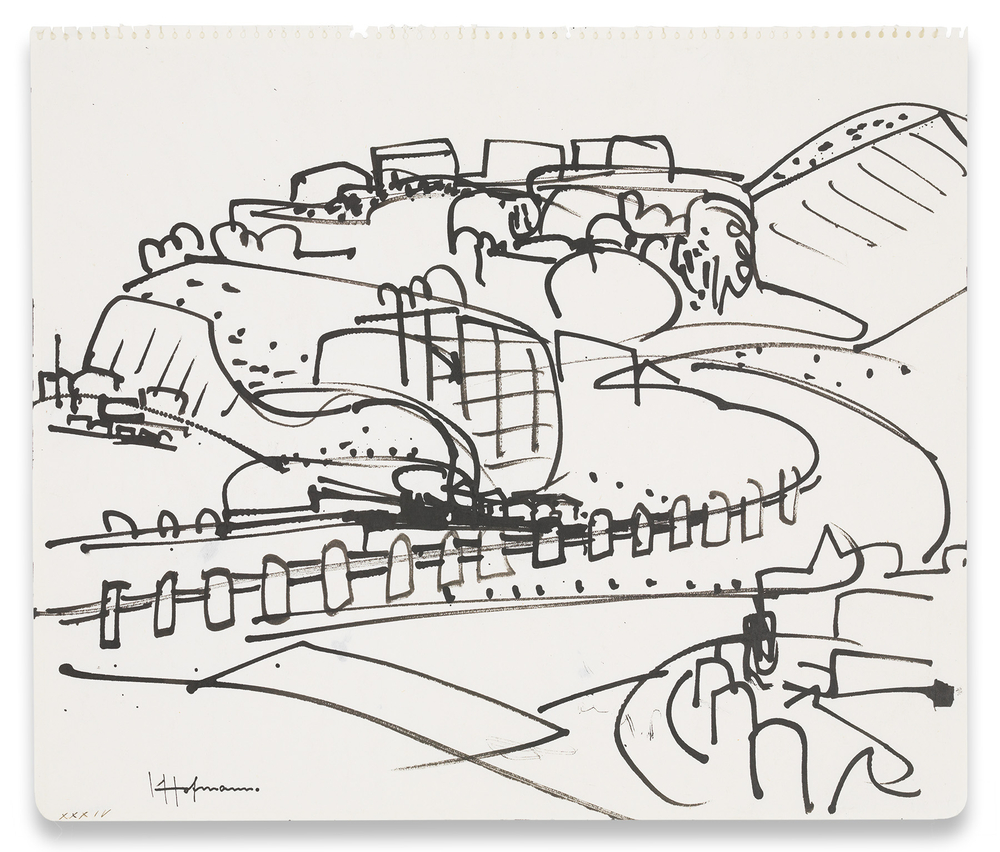
Hans Hofmann | Hunter College
Hans Hofmann: "The California Exhibitions, 1931"
28 February – 5 May 2019

Oil Tanks from Richmond (XXXIV), 1931, Ink on paper, 10 1/2 x 13 1/2 inches.
Hans Hofmann: "The California Exhibitions, 1931" revisits Hofmann's first exhibitions in the United States, mounted at San Francisco’s Palace of the Legion of Honor and the University of California, Berkeley’s Haviland Hall in August 1931. Hofmann was by then an internationally renowned teacher with a growing following of American students at his Schule für Bildende Kunst in Munich. The California exhibitions marked the end of his second consecutive summer teaching workshops at Berkeley at the invitation of Worth Ryder, one of his former students. Ryder organized the exhibitions, and he apologized in his introduction to the paired shows that they included only drawings rather than the artist’s paintings—“but,” he insisted, “in these drawings, so small in size yet so vast in scope, the greatest achievements of modern art are in solution.”
Hofmann, who moved to the U.S. permanently in 1933 to open his school on Madison Avenue in New York City, is best known now as a painter, and one of the most important figures of American Abstract Expressionism, but from 1915 through the 1930s, drawing was his nearly exclusive form of artistic expression. Hans Hofmann: "The California Exhibitions, 1931" offers an opportunity to see Hofmann's drawings again, and to assess what Ryder saw as the solutions of modern art. The thirty works exhibited at Hunter College's Leubsdorf Gallery were among the works included in the San Francisco and Berkeley shows: portraits and landscapes completed in Munich and Saint-Tropez in the late 1920s, and in California in 1930 and 1931, as Hofmann discovered the San Francisco Bay Area landscape.
Hans Hofmann: "The California Exhibitions, 1931" is organized by Hunter College MA Art History students and Hofmann Research Fellows Mindy Friedman, Chika Jenkins, and Anna Tome, with Howard Singerman, professor and Phyllis and Joseph Caroff Chair of the Department of Art and Art History at Hunter College. The exhibition and catalogue are supported by a generous grant from The Renate, Hans, and Maria Hofmann Trust.